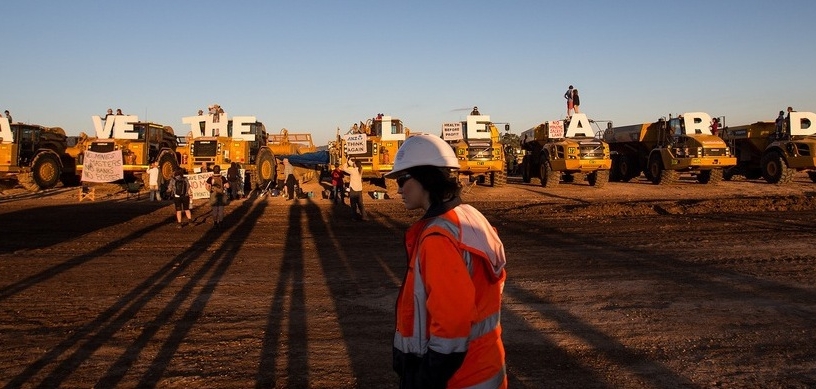First off, has EFFA noticed any recurring themes cropping up in the film submissions this year? “We have – this year themes included waste management, how we can use what we have better, how can we stop unnecessary waste, how we can use waste products in recycling and for other purposes…all kinds of waste, food, plastic, nuclear, electronic, pharmaceuticals, etc. Climate change is a massive theme this year. It’s really timely given global climate change negotiations are coming up in Paris. Also, we’re seeing films about the beauty and wonder of nature, and how can we see the environment in new and different ways.”
How many of the films possess a ‘call to action’ impact on the audience – or would you say that this is true of all of them? “Film is a very powerful medium, and can both enrich our perspective of the environment and inform us on the issues that we are facing. There is something to learn and appreciate from all the EFFA films, but not all of them are going to have an in-your-face message…they don’t all scream ‘change your behaviour’! Some films give information to make better decisions in our daily life, some films encourage us to seek out more information or groups that take issues further and some films just have fun with nature – taking audiences to new places.”
Is all the news bad?“Absolutely not! That said, there are some really important issues facing our local, national and international environments: protection of water resources, of critically endangered species, managing pests animals and plants (a huge issue here in Australia), and responding to climate change. We have a lot to learn from sharing the stories of how people and communities are already doing these things, how they are already fighting for climate justice, or fighting to ensure the environment has a voice. EFFA films explore finding that voice, exploring what is happening now, and hopefully laying some seeds of thought about how the future can be better.”
What does EFFA look for when selecting the films? ”EFFA looks for some simple ingredients that make a film suitable for programming in the festival: is it engaging? Is it relevant for an Australian audience? Does it raise interesting questions or arguments? Would EFFA audiences be interested in seeing it?”
Tell us about your selection process – how do you choose which films make the festival? “We scour the world for the best environmental films, and then we reach across Australia to surface some fantastic Australian content. The final decisions are really tough – there are so many brilliant films out there. We only have a limited number of sessions, so we try for programming diversity, with something new and different from previous years – see Sensory Environments, which we are super excited about!”
Who do you think is the strongest voice in environmental affairs these days? Who should we be especially listening to? “It is important that everyone’s voice is listened to, and given the opportunity to be heard. EFFA films offer great examples of people trying to do that.”
Does Melin have a particular favourite in this year’s crop? “Yes! Thule Tuvalu is a wonderful human story about climate change impacts – it is sensitively crafted and quite stunning on the big screen. And a real surprise packet for me is The Man from Coxs River, an Aussie film about removing wild brumbies from the Blue Mountains World Heritage Area – a really complex and dangerous task, and one not without its community concerns. Filmmaker Russell Kilbey documents this mission and provides the audience with some fascinating insights. Oh, and Containment and Field Biologist are also great!”
Are you seeing more alternative filmic styles dealing with environmental issues? “We have some amazing shorts this year – we often have shorts accompanying feature films – and there are several beautiful animated stories – Abita, Wind, and The Orphan and the Polar Bear.”
In terms of general awareness, do you see an appreciation of these films growing? “I think that environmental issues and films are starting to become more and more popular – our festival is growing too. We see the bigger festivals program more of this content – MIFF had some great options like Sherpa and Racing Extinction – and we see more independent and Hollywood titles addressing social and environmental issues like climate change, sea level rise and environmental activism – I’m thinking 2014’s Night Moves, Wall-E, and Everest coming up soon.”
Where else are people seeing these films? “Many films that we screen at EFFA will only be screened here. They are not all large productions and will not necessarily get a theatrical release. Some of the Australian content will go to TV eventually. And some of the titles will get picked up on online TV services like Netflix. Getting the films in-front of eyes is really important, so hopefully more distributers and programmers will take note of the growing interest in the films programmed at EFFA and other similar festivals around Australia.”
What are EFFA’s audience demographics? “Our audience is diverse – from young families, who are going to be hitting up the Planetarium for the wonderful Coral Rekindling Venus, through to older film-going audience members – there really is something for everyone.”
BY LIZA DEZFOULI







